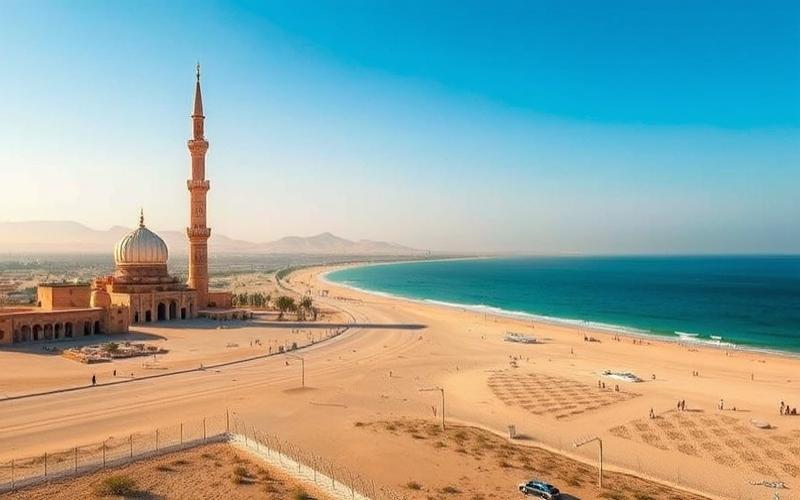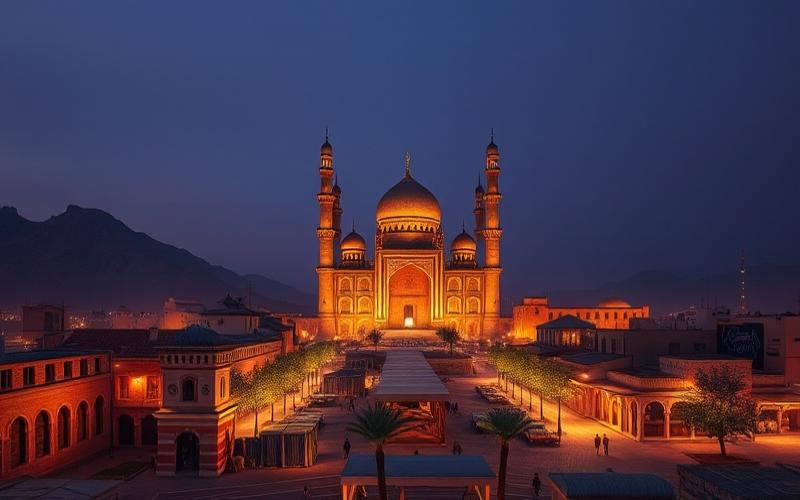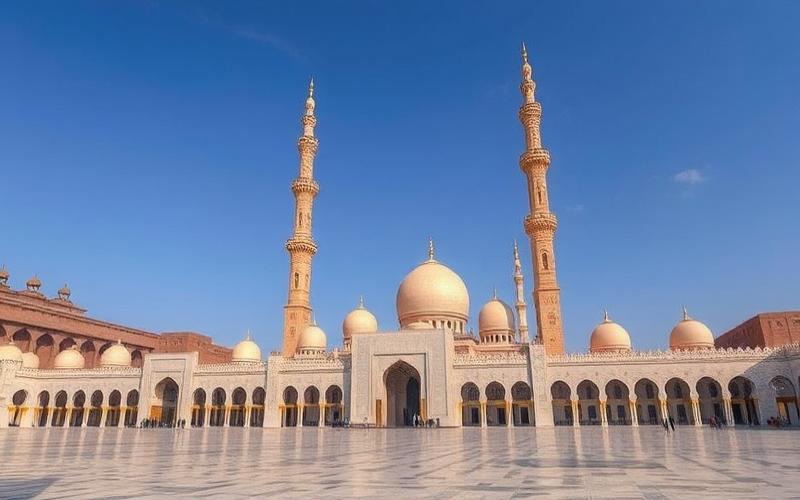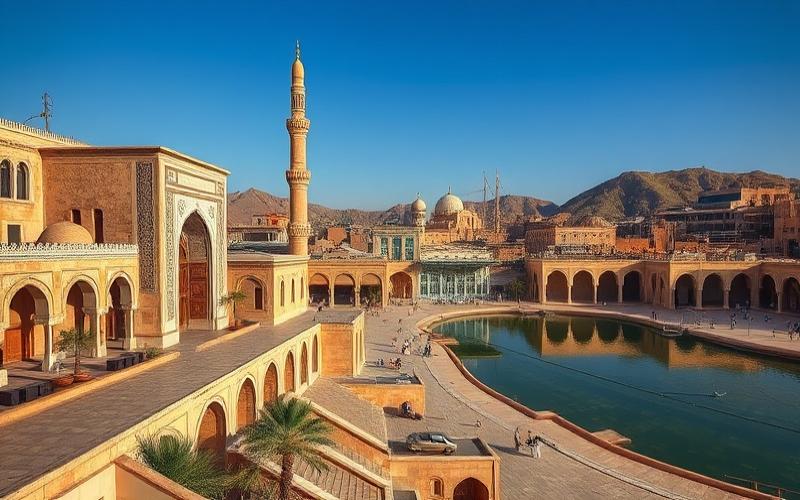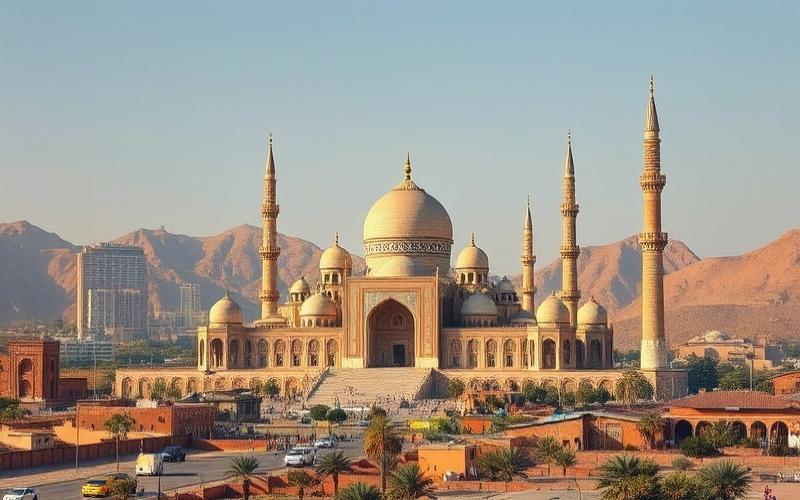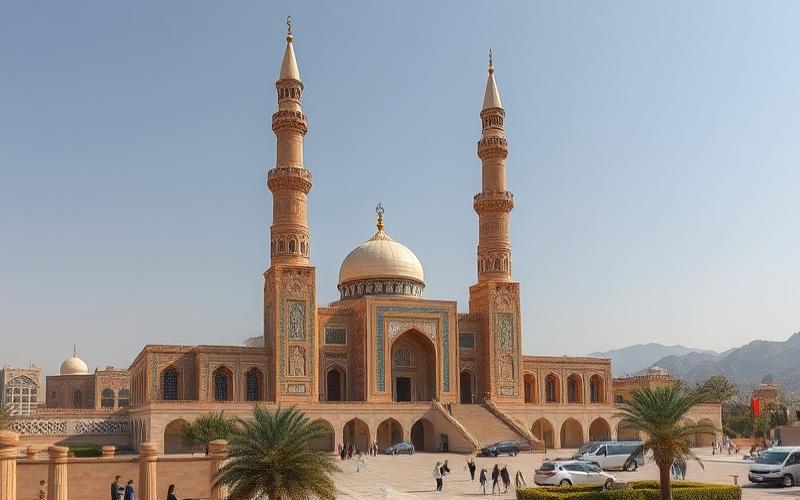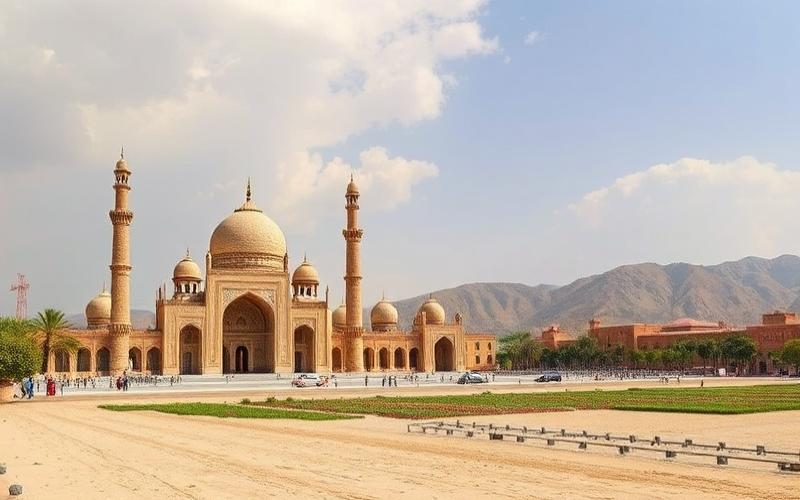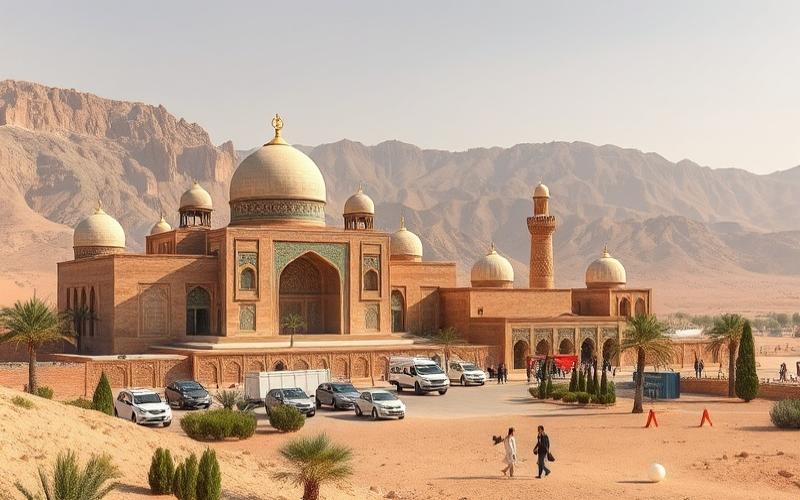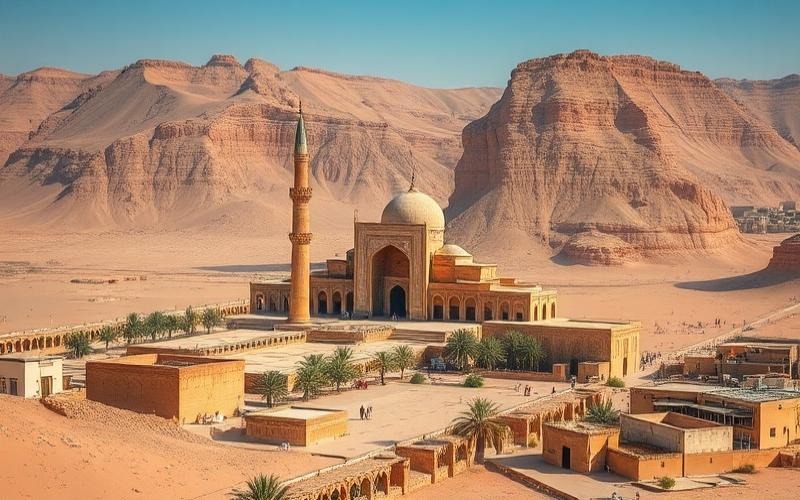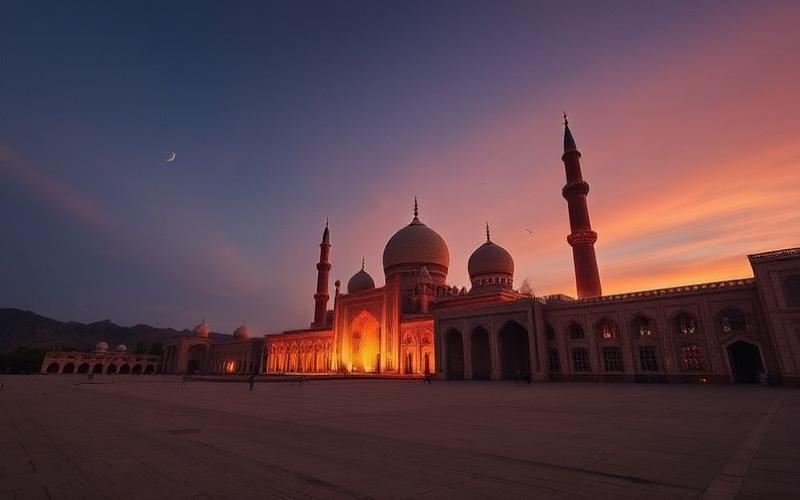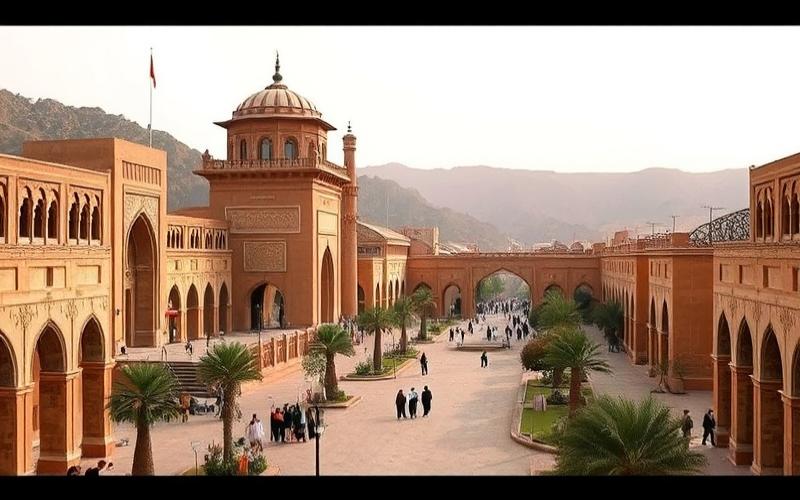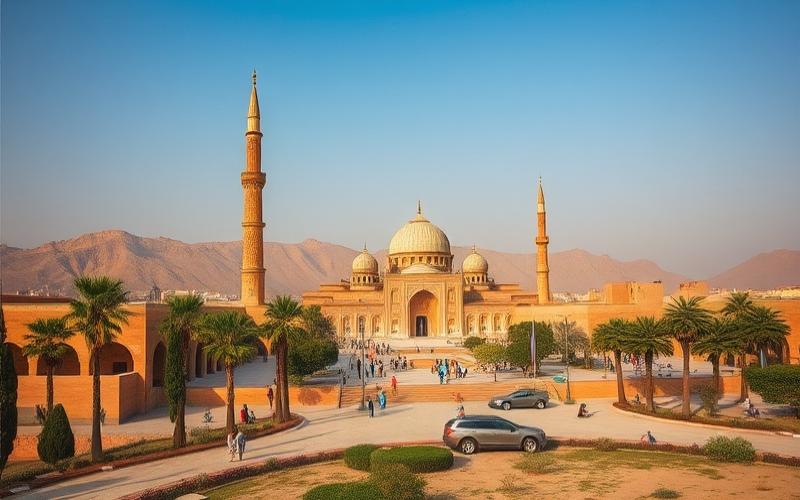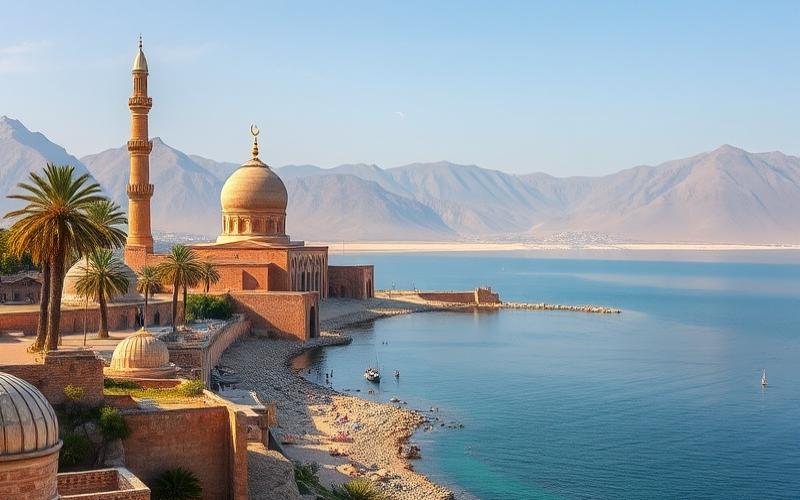
 Published on and written by Cyril Jarnias
Published on and written by Cyril Jarnias
Bahrain, a small archipelago in the Persian Gulf, is a rapidly growing economic hub attracting increasing numbers of businesses and expatriates. Understanding the corporate culture in this country is essential for anyone looking to establish themselves professionally or expand their operations there. This article provides a comprehensive overview of the specificities of Bahraini corporate culture, from the underlying values to employee engagement strategies, including management styles and the growing importance placed on diversity.
The DNA of Bahraini Companies: Values and Norms at the Heart of the Gulf
Corporate culture in Bahrain is deeply rooted in Arab and Islamic traditions, while remaining open to international influences. This duality is reflected in the values and norms governing the business world in the kingdom.
Respect for hierarchy and elders is a fundamental value in Bahraini society, which naturally translates into the professional environment. Employees tend to show great deference to their superiors, and decisions are often made at the top of the hierarchy. This vertical structure can sometimes surprise Western professionals accustomed to more horizontal environments.
The importance of personal relationships is another pillar of Bahraini corporate culture. The concept of “wasta,” which can be translated as “connections” or “influence,” plays a crucial role in business. Building and maintaining a strong network of contacts is often considered just as important as technical skills for professional success.
Hospitality and generosity are deeply ingrained values in Arab culture that also manifest in the business world. It’s not uncommon for business meetings to begin with an exchange of pleasantries and Arabic coffee, creating a friendly atmosphere conducive to negotiations.
The sense of honor and reputation is paramount in Bahraini culture. Companies place great importance on their image and reputation, which translates into a constant concern for maintaining harmonious relationships with partners and clients.
However, it’s important to note that Bahrain, as an international financial center, has also adopted many Western business practices. Punctuality, professionalism, and efficiency are increasingly valued, particularly in large companies and multinationals present in the country.
Good to know:
Corporate culture in Bahrain is a subtle blend of Arab traditions and modern practices. Understanding and respecting these values is essential for establishing lasting business relationships in the kingdom.
Internal Communication: Between Tradition and Modernity
Communication within Bahraini companies reflects both the country’s cultural heritage and its openness to globalization. This duality creates a unique communication environment worth exploring.
Verbal communication plays a predominant role in Bahraini corporate culture. Bahrainis place great importance on face-to-face exchanges and informal discussions. Meetings and hallway conversations are often considered more effective than email exchanges or written memos. This preference for oral communication is partly explained by the Arab tradition of orality and storytelling.
Respect for hierarchy strongly influences internal communication modes. Employees tend to address their superiors with great respect and formality. Upward communication can sometimes be limited, with subordinates hesitant to openly contradict or question their superiors’ decisions.
The importance of context in communication is a crucial aspect to understand. Bahraini culture, like many Arab cultures, is considered a “high-context” culture. This means the message isn’t always explicitly formulated, and context, tone of voice, and body language play an important role in understanding the message. Foreign professionals must be attentive to these nuances to avoid misunderstandings.
However, the influence of globalization and the growing adoption of information technologies have also changed internal communication practices in Bahrain. Digital communication tools such as email, instant messaging, and corporate intranets are increasingly used, particularly in large companies and multinationals.
The language of communication is another important aspect to consider. Although Arabic is the official language of Bahrain, English is widely used in the business world. Many companies adopt a bilingual communication policy, with documents and meetings in both Arabic and English.
Confidentiality and discretion are important values in Bahraini corporate communication. Sensitive information is generally shared sparingly and only with directly concerned individuals. This approach can sometimes be perceived as a lack of transparency by Western professionals accustomed to more open work environments.
Good to know:
Internal communication in Bahrain favors verbal exchanges and respect for hierarchy, while gradually integrating modern communication tools. A flexible approach sensitive to cultural context is essential for communicating effectively in this country.
Bahraini Leadership: Between Traditional Authority and Modern Management
The management style in Bahrain reflects the country’s culture, blending Arab traditions and international influences. Understanding these nuances is crucial for leaders and employees working in the kingdom.
Authority and hierarchical respect are central elements of Bahraini management. Leaders are generally perceived as authority figures whose decisions are not openly questioned. This leadership style can be described as paternalistic, with managers often seen as guides and protectors of their teams.
Centralized decision-making is common in many Bahraini companies. Important decisions are generally made at the top of the hierarchy, with limited consultation from lower levels. This approach can sometimes slow down decision-making processes but is deeply rooted in the culture of respect for authority.
The importance of interpersonal relationships in management cannot be underestimated. Bahraini managers often place great importance on building strong relationships with their employees. It’s not uncommon to see managers taking an interest in their subordinates’ personal lives and offering support that goes beyond the professional framework.
However, the growing influence of international management practices has led to the emergence of more participatory leadership styles, particularly in large companies and multinationals. These approaches encourage more collaboration, delegation, and employee empowerment.
Time and deadline management may differ from Western norms. Although punctuality is increasingly valued, there’s still some flexibility in time management. Managers must be aware of this cultural difference and adjust their expectations accordingly.
Conflict resolution in Bahraini management often prioritizes preserving harmony and relationships. Direct confrontations are generally avoided in favor of more indirect and diplomatic discussions to resolve problems.
Skills development and training are increasingly valued in Bahraini management. Many companies invest in training and development programs for their employees, recognizing the importance of human capital in a competitive economic environment.
Good to know:
The management style in Bahrain combines respect for traditional authority with the gradual adoption of modern practices. Effective managers are those who manage to strike a balance between these two approaches, respecting cultural values while fostering innovation and performance.
Diversity and Inclusion: Toward a More Open Business World
Diversity and inclusion are topics gaining importance in the Bahraini business landscape, reflecting both the country’s traditions and its ambition to become a competitive international business center.
Cultural diversity is a growing reality in Bahrain. The country attracts many expatriates and international companies, creating a multicultural work environment. This diversity is increasingly valued by companies that recognize the benefits of a diverse workforce in terms of creativity and innovation.
Gender equality in the workplace is progressing, although challenges persist. Bahrain stands out as one of the most progressive Gulf countries in terms of women’s rights. Many women hold leadership positions in both public and private sectors. However, disparities remain, particularly in terms of representation in certain sectors and at the highest levels of management.
Inclusion of people with disabilities is receiving increasing attention. Government and private initiatives aim to promote employment and integration of people with disabilities in the workplace. Some companies implement specific programs to recruit and support employees with disabilities.
Generational diversity is another important aspect. With a young and dynamic population, Bahrain is seeing the emergence of a new generation of professionals alongside more experienced managers. This diversity of age and experience can be a source of dynamism and innovation when properly managed.
The balance between nationalization and internationalization of the workforce is a major challenge. The Bahraini government actively encourages employment of Bahraini citizens (“Bahrainization” policy), while recognizing the need to attract international talent. Companies must navigate between these two imperatives, ensuring they develop local skills while benefiting from international expertise.
Religious diversity is generally well respected in the Bahraini business world. Although Islam is the dominant religion, Bahrain is known for its religious tolerance. Companies are generally attentive to the religious needs of their employees, for example by providing prayer spaces or adjusting work schedules during Ramadan.
Diversity and inclusion initiatives are multiplying in Bahraini companies. Some organizations implement specific policies to promote diversity, inclusion training, and mentoring programs to support underrepresented groups.
Good to know:
Bahrain is making progress in diversity and inclusion in the business world, with particular attention to gender equality and the integration of local and international talent. Companies that embrace this diversity are better positioned to succeed in an increasingly globalized economic environment.
Engagement and Motivation: Keys to Success in the Gulf
Employee engagement and motivation are crucial aspects of corporate culture in Bahrain, where companies seek to attract and retain the best talent in an increasingly competitive job market.
Recognition and rewards play a central role in engagement strategies in Bahrain. Companies often implement formal recognition programs to celebrate individual and collective achievements. These programs may include financial rewards, promotions, or public recognition, which are particularly appreciated in a culture where social status is important.
Professional development is a major motivation lever. Many Bahraini companies invest in training and development of their employees, offering opportunities for continuous learning and career progression. This approach responds to both the aspirations of ambitious young Bahraini professionals and companies’ needs for evolving skills.
Work-life balance is gaining importance, particularly among younger generations. Although work culture in Bahrain can be intense, more companies recognize the importance of offering flexible hours, generous leave, and wellness-related benefits to maintain employee engagement and productivity.
Creating a positive work environment is a priority for many Bahraini companies. This can translate into designing modern and comfortable workspaces, organizing social events to strengthen team cohesion, or implementing workplace wellness programs.
Transparent communication is increasingly recognized as a key engagement factor. Progressive companies in Bahrain strive to maintain open communication with their employees, keeping them informed of company goals, performance, and future opportunities.
Involvement in decision-making is an emerging trend. Some companies adopt more participatory approaches, encouraging employees to contribute to decisions affecting their work. This approach can be particularly motivating for young Bahraini professionals eager to have their voices heard.
Corporate social responsibility (CSR) plays a growing role in employee engagement. CSR initiatives, whether environmental programs or community projects, can strengthen employees’ sense of pride and belonging to their company.
Attractive benefits are an important element of retention strategies. Beyond competitive salaries, Bahraini companies often offer benefits such as quality health insurance, retirement savings plans, or housing allowances, which are particularly appreciated in the local context.
Good to know:
Engagement strategies in Bahrain combine traditional approaches based on recognition and rewards with more modern trends focused on professional development and employee well-being. Companies that succeed in creating a motivating and inclusive work environment are better positioned to attract and retain talent in an increasingly competitive job market.
Understanding and adapting to Bahraini corporate culture is essential for professional success in this dynamic Gulf country. This unique culture, which blends Arab traditions and modern practices, offers numerous opportunities for businesses and professionals who know how to navigate its subtleties.
Respect for traditional values, such as hierarchy and the importance of personal relationships, remains fundamental. However, these values increasingly coexist with modern management practices, creating an ever-evolving work environment.
Communication in Bahraini companies requires a nuanced approach, combining direct and personal exchanges with increasing use of digital tools. The ability to communicate effectively in this multicultural context is a major asset.
Leadership in Bahrain requires a delicate balance between traditional authority and more participatory management styles. Effective leaders are those who manage to inspire respect while encouraging innovation and initiative-taking.
Diversity and inclusion are gaining importance in the Bahraini business landscape. Companies that embrace this diversity, particularly in terms of gender, culture, and generations, are better positioned to succeed in an increasingly globalized economic environment.
Employee engagement is a crucial challenge, with strategies combining traditional recognition and modern approaches focused on professional development and well-being.
For professionals and companies wishing to establish or expand in Bahrain, it’s essential to:
– Develop a thorough understanding of local culture and its nuances. – Be flexible and adaptable, combining respect for traditions with openness to modern practices. – Invest in building strong relationships, both within the company and with external partners. – Stay attuned to rapid changes in the job market and the expectations of Bahraini employees.
By adopting these approaches, companies and professionals can not only successfully integrate into the Bahraini business landscape but also contribute to its dynamism and continuous evolution.
Good to know:
Corporate culture in Bahrain is constantly evolving, blending tradition and modernity. A respectful, flexible, and informed approach is the key to success in this unique and dynamic business environment.
Disclaimer: The information provided on this website is for informational purposes only and does not constitute financial, legal, or professional advice. We encourage you to consult qualified experts before making any investment, real estate, or expatriation decisions. Although we strive to maintain up-to-date and accurate information, we do not guarantee the completeness, accuracy, or timeliness of the proposed content. As investment and expatriation involve risks, we disclaim any liability for potential losses or damages arising from the use of this site. Your use of this site confirms your acceptance of these terms and your understanding of the associated risks.

